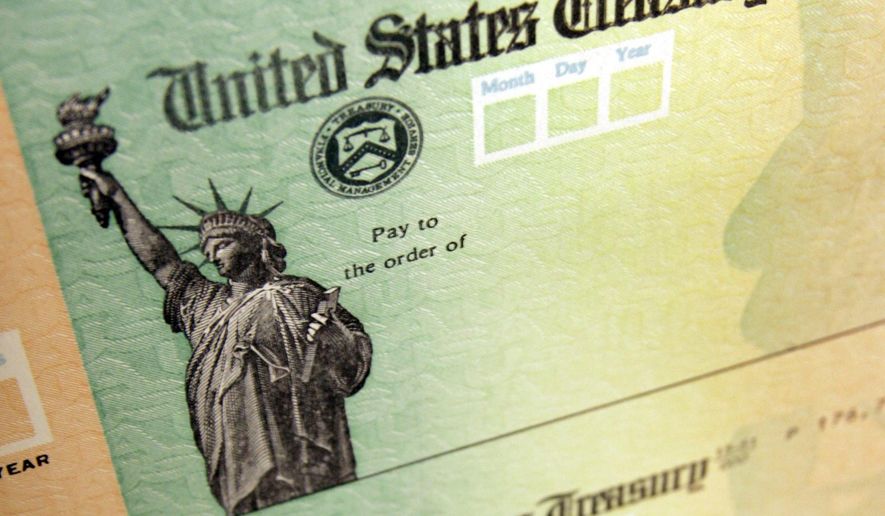The IRS is still paying pandemic benefits to dead people, the agency’s inspector general has revealed in a report that identifies tens of thousands of erroneous payments.
About 45,000 payments of the advance recovery rebate credit, part of Democrats’ $1.9 trillion pandemic relief bill last year, were distributed to deceased dependents of taxpayers, according to the Treasury Inspector General for Tax Administration.
TIGTA said the problem was a computer programming error.
Meanwhile, nearly 26,500 more payments were made to taxpayers who died before the Jan. 1, 2021, cutoff date but whose dates of death either weren’t reported or weren’t yet validated by the IRS.
Some of those payments were rejected by banks or returned as undeliverable, but nearly 19,000 were processed, TIGTA said.
The IRS generally lacks authority to demand repayment, the inspector general said.
SEE ALSO: Biden’s budget will seek minimum tax on households worth more than $100M
The recovery rebate credit paid up to $1,400 per person. For the most part, they came in checks issued by the IRS, just like previous pandemic stimulus payments.
The IRS made 167.4 million payments overall, and 99.48% of them were correct, TIGTA said in its report, released Thursday.
The IRS didn’t comment in response to an inquiry from The Washington Times. In its official response to the audit, the agency said asking it to manage the stimulus payments was like trying to fit a round peg into a square hole: The IRS is set up to collect money from people, not pay them.
“Consequently, the automated systems at our disposal for issuing the [payments] were designed for the purpose of assessing and collecting tax,” said Kenneth C. Corbin, commissioner of the wage and investment division. “As such, not all information needed to accurately calculate every payment was available with the [payments] were determined, even if it resided in other systems at the time.”
TIGTA flagged payments to dependents that appeared on more than one tax return, suggesting they were duplicates, but the IRS said it simply didn’t have the ability to track payments at the level of detail needed to prevent that kind of duplication.
The IRS did agree to work on additional safeguards to prevent payments to dead people should Congress enact another round of stimulus payments.
Recovery rebate credit payments to dead people didn’t total much in the scheme of things — about $92 million, or a tiny fraction of the $1.9 trillion price tag of the American Recovery Act.
Still, the IRS made the payments after it was dinged in 2020 for blowing billions of dollars on bogus payments from the first round of pandemic relief.
TIGTA estimates that nearly 4.5 million erroneous payments, costing $5.5 billion, were made during the first round of pandemic relief in the spring of 2020. That includes about 2.2 million payments to deceased people, costing $3.5 billion.
The inspector general said it warned the IRS about the problems but the agency didn’t follow through.
“We made recommendations during our prior review to address these conditions. However, as we noted previously, IRS management disagreed with our recommendations,” TIGTA said.
Still, things were better this time around.
TIGA identified just 1.2 million potentially erroneous payments in all, costing $1.9 billion.
Among the other bungles that the inspector general found were duplicate payments after the filing status or filing partner changed from 2019 to 2020 and payments sent to U.S. territories. TIGTA said that increases the risk of double payments.
In addition to the bogus payments, the inspector general found more than 600,000 people who appeared to be eligible for payments but did not receive them.
That included people incorrectly marked as residents of a U.S. territory, and qualifying dependents of people working under an Individual taxpayer identification number, or ITIN, which is usually issued to migrants.
The IRS agreed that most of those were deserving of payments and that it changed its systems.
• Stephen Dinan can be reached at sdinan@washingtontimes.com.




Please read our comment policy before commenting.